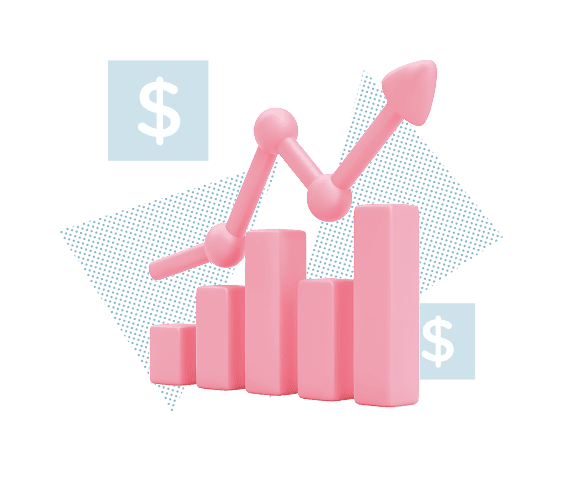Savings by Age — How Much Should I Have in My 20s, 30s, 40s, 50s
Updated: 23 Sept 2025
Written bySingSaver Team
Team
The information on this page is for educational and informational purposes only and should not be considered financial or investment advice. While we review and compare financial products to help you find the best options, we do not provide personalised recommendations or investment advisory services. Always do your own research or consult a licensed financial professional before making any financial decisions.
When it comes to savings, many people ask the golden question — “How much should I have saved by a certain age?” The truth is, there is no universal answer. It depends largely on your financial commitments, life stage, and personal priorities. For example, if you are in your 30s and starting a family or buying a home, your focus may naturally shift towards building up your savings quickly for big-ticket expenses.
On the other hand, someone the same age but without immediate family plans may prefer to channel more funds into investments, prioritising long-term growth over short-term liquidity. Everyone’s lifestyle and financial goals are different, which is why the savings figures in this guide are meant as helpful benchmarks, not rigid targets. How you use them — whether as a goal to aim for or a milestone to celebrate — should ultimately align with your unique situation and habits.
How much are Singaporeans saving on average?
As of the end of 2024, Singapore's personal savings rate stood at 35.3%, reflecting a consistent trend over the past decade. This rate indicates that, on average, individuals are setting aside over a third of their disposable income.
However, it's essential to recognise that this average doesn't capture the full picture. Factors such as income level, lifestyle choices, and financial obligations can significantly influence individual savings rates.
Therefore, while national averages provide a useful benchmark, it's crucial to tailor your savings goals to your personal circumstances, ensuring they align with your income, expenses, and long-term financial objectives.
Find the bank account for your needs
Compare savings, current, and multi-currency accounts to make your money work smarter.
Recommended savings by age in Singapore
Income and financial obligations vary greatly depending on age. Young workers starting out in their careers typically earn less and may find saving a challenge, while mid-career individuals may be able to save more. In later years, expenses may stabilise or even decline, but retirement savings become a higher priority.
To give you a clearer picture, here’s how the median salary and recommended savings levels — using both the suggested 20% savings rate and Singapore's 31.5% average savings rate — look across age groups.
|
Age group |
Median monthly salary (2024) |
20% savings per month (recommended minimum) |
31.5% savings per month (average rate) |
|
15 - 19 |
$1,200 |
$240 |
$378 |
|
20 - 24 |
$2,720 |
$544 |
$857 |
|
25 - 29 |
$4,260 |
$852 |
$1,342 |
|
30 - 34 |
$5,585 |
$1,117 |
$1,760 |
|
35 - 39 |
$6,281 |
$1,256 |
$1,978 |
|
40 - 44 |
$6,400 |
$1,280 |
$2,016 |
|
45 - 49 |
$6,118 |
$1,224 |
$1,927 |
|
50 - 54 |
$5,765 |
$1,153 |
$1,816 |
|
55 - 59 |
$4,756 |
$951 |
$1,498 |
|
60 & over |
$3,260 |
$652 |
$1,028 |
Source: Department of Statistics Singapore
>> MORE: Typical minimum balances to open savings accounts in Singapore
How much savings should I have in my 20s?
Your 20s mark the beginning of your financial journey. While it may not feel urgent to save aggressively at this stage, laying the groundwork early on can make a huge difference later. Starting with a clear savings strategy allows you to form healthy money habits that will serve you for decades. In Singapore, the median monthly salary for those aged 20 to 24 was around $2,720 in 2024, rising to $4,260 for those between 25 and 29. Using the 50/30/20 budgeting rule as a guide, saving 20% of your income equates to about $544 to $852 per month. If you started saving consistently at age 22, by the time you turn 25, you could have saved close to $20,000. By age 30, this amount could increase significantly, reaching over $50,000 — assuming steady income growth and disciplined savings.
During this period, your financial goals should focus on establishing a firm foundation. An emergency fund is a top priority. Ideally, this should cover at least three to six months of essential expenses, acting as a safety net in case of unexpected job loss or medical emergencies. This fund offers peace of mind and protects you from dipping into your long-term savings or resorting to debt when challenges arise. For many young Singaporeans who may still be adjusting to working life, this step alone can provide greater financial security.
Beyond saving, investing should also be on your radar. Starting early allows you to take advantage of compound interest, where returns earned are reinvested to generate even more returns. Even small investments made in your 20s can grow exponentially over the decades. At the same time, it is important to avoid lifestyle inflation. As your income rises, it can be tempting to upgrade your spending on things like dining, gadgets, and travel. While there’s nothing wrong with treating yourself occasionally, living below your means and sticking to your savings targets will put you in a much stronger position later on.
>> MORE: Best credit cards for young adults in Singapore (2025)
⚡SingSaver x Citigold Flash Deal⚡
Enjoy up to 7.51% p.a. interest when you join Citigold and open a Wealth First account. Plus, get up to 80k Max Miles by Heymax (worth S$1,440), an Apple iPad Air (M3) 11” Wi-Fi 512GB, upsized cash up to S$1,500, or an Apple iPhone 17 256GB when you successfully apply for a Citigold account, become an Accredited Investor, and make a S$350,000 deposit within 3 months of account opening, maintaining these funds until gift fulfilment. Valid till 28 February 2026. T&Cs apply.
How much savings should I have in my 30s?
Your 30s are often referred to as your financial prime. Many Singaporeans see significant career advancement and salary growth during this time, which makes it critical to step up your saving game. Median salaries rise sharply in this decade — in 2024, the median salary for those aged 30 to 34 was $5,585, and for those aged 35 to 39, it was $6,281. Saving 20% of this income equates to around $1,117 to $1,256 each month. By age 35, assuming steady savings from your late 20s, you could amass approximately $100,000. Continuing this momentum, by the time you reach 40, your total savings could potentially surpass $150,000.
At this stage, saving should go beyond simply putting aside a fixed percentage of your salary. As your income increases, so should your savings rate. While 20% is the general recommendation, consider pushing for 25% or more if your expenses allow. This will help you accelerate your wealth accumulation and create more flexibility for future life goals. In your 30s, these goals often include major financial milestones such as getting married, purchasing your first home, and starting a family. Each of these requires careful planning and significant savings.
Diversifying your investments also becomes more important in your 30s. While CPF contributions continue to form a core part of your retirement planning, it is wise to complement them with investments in stocks, bonds, and unit trusts. This not only spreads your risk but also offers the potential for higher returns. Ultimately, the aim is to balance saving for your immediate goals while keeping your long-term retirement plans firmly in sight.
How much savings should I have in my 40s?
By your 40s, you will likely be in your peak earning years. Median salaries for Singaporeans in this age group remain steady, with those aged 40 to 44 earning about $6,400 monthly, and those aged 45 to 49 earning around $6,118. Applying the 20% savings rule, this works out to between $1,224 and $1,280 each month. Over five years, this means adding another $70,000 to your nest egg. Assuming you have been disciplined in your 20s and 30s, it is realistic to target total savings of around $250,000 to $300,000 by your mid-to-late 40s.
The financial priorities in your 40s shift towards consolidation and protection. CPF contributions should be maximised, particularly as Special Account balances earn higher interest rates and are essential for your retirement needs. At the same time, your focus may expand to include funding your children’s education, which can be a substantial expense. Planning ahead and setting aside funds early can help ease the financial pressure when the time comes for university tuition and other related costs.
Additionally, this is the age when you may want to reduce your liabilities. If you have an outstanding mortgage, consider strategies to pay it down more quickly or explore downsizing options to reduce financial strain. Even as you continue building your retirement funds, remaining diligent about your everyday spending and savings habits is key. The discipline you maintain now will directly impact your financial security in the decades to come.
Go exclusive with priority banking
Take your wealth management to the next level with a priority banking account
How much savings should I have in my 50s?
As you enter your 50s, retirement no longer feels like a distant future — it is approaching rapidly. Median salaries tend to taper slightly in this decade, with those aged 50 to 54 earning about $5,765 and those aged 55 to 59 earning around $4,756 in 2024. Saving 20% of this income still translates to $951 to $1,153 monthly. Over five years, this adds about $60,000 to your savings. By this stage, your cumulative savings target should ideally be between $400,000 to $500,000, assuming steady contributions in previous decades.
With retirement on the horizon, your financial goals should focus on maximising your income streams for your golden years. One of the most effective ways to do this is by optimising your CPF LIFE payouts. This involves ensuring you meet the Full Retirement Sum or Enhanced Retirement Sum if possible, which will provide a stable monthly payout for life. In addition to CPF, continue diversifying your portfolio to include safe and stable income-generating investments, while gradually reducing your exposure to high-risk assets.
Healthcare planning becomes increasingly important in your 50s. You should review your insurance coverage to ensure it meets your current and future needs, particularly for critical illness and hospitalisation. Estate planning should also be on your radar. Drafting a will, nominating CPF beneficiaries, and considering wealth transfer strategies can help safeguard your assets and provide peace of mind for your loved ones. Finally, while staying invested is key, it is equally important to avoid tying up too much money in volatile investments at this stage. Preserving your capital should take precedence as retirement draws closer.
>> MORE: Retirement planning guide
How much should I save for retirement at 60
Reaching your 60s is a major financial milestone. Ideally, by now, you should have a clear idea of how much you will need each month to support your desired retirement lifestyle. According to the 2023 Household Expenditure Survey, retiree households in Singapore — defined as those with non-working individuals aged 65 and above — spent an average of $2,349 per month. Using this figure as a starting point, you can begin to assess whether your savings and income sources are sufficient.
Your desired retirement lifestyle plays a major role in determining how much you should save. A basic retirement that covers essentials such as housing, food, healthcare, and transport may require less. However, if you wish to travel, dine out regularly, or pursue hobbies, your expenses could be significantly higher. Projecting your potential living costs, including inflation, will give you a more realistic savings target. For instance, factoring in inflation at 2% to 3% annually means today's $2,349 could increase to around $3,000 or more in the coming decades.
In terms of income, CPF LIFE payouts will likely form the backbone of your retirement income. Depending on how much you have set aside, payouts can range widely. Additional income may come from part-time work, annuities, or returns from investments like REITs and bonds. When combined, these sources should ideally exceed your estimated monthly expenses to provide a comfortable buffer. Retirement is about ensuring financial freedom — and that means having enough not only to cover basic needs, but also to enjoy life on your own terms.

Let your money work for you while you rest with a good robo-advisor
Compare automated investment options and find the one that suits your retirement needs.
Savings principles for Singaporeans of all ages
Start saving early
Regardless of whether you are just starting your career or counting down the years to retirement, one principle holds true — the earlier you begin saving, the more options and security you will have later on. Time is one of your biggest allies when it comes to building wealth. Thanks to the power of compounding, every dollar you save and invest has the potential to generate returns, which can in turn be reinvested to create even greater gains. Starting early means you can contribute smaller amounts consistently and still reach meaningful goals without needing to play catch-up later in life.
Adapt savings strategy to changing life stages and circumstances
As you move through life’s stages, your priorities and financial needs will change — and your savings approach should evolve accordingly. In your 20s, the focus may be on building an emergency fund and starting small investments. As you enter your 30s and 40s, attention naturally shifts towards growing your wealth, preparing for family commitments, and planning for long-term goals like home ownership and children’s education. By your 50s and 60s, preserving wealth, maximising retirement income, and estate planning take centre stage. Adapting your strategy to meet these changing demands ensures your financial plan stays relevant and achievable.
Don't give in to lifestyle inflation
As your income increases, it's tempting to elevate your spending. Avoid falling into the common trap of lifestyle inflation. As salaries rise, it can be tempting to upgrade your home, car, and holidays in step with your income. While it is normal to enjoy the fruits of your labour, consistently increasing your spending can erode your ability to save and invest for the future. Practising mindful spending, automating savings, and regularly reviewing your financial goals can help you stay disciplined. Ultimately, successful saving is not about depriving yourself — it is about ensuring that you are prepared for whatever life brings, while still having the freedom to enjoy today.
Focus on personal financial goals for a secure financial future
While benchmarks provide guidance, personalising your savings strategy to fit your unique circumstances is paramount. Regularly review your financial plan, stay informed, and make adjustments as needed to ensure long-term financial security.
Frequently asked questions about how much savings you should have by age
As a general rule, aim to save at least 20% of your take-home pay each month. However, if your expenses are lower or your salary is higher, saving more — ideally closer to Singapore’s average personal savings rate of 31.5% — can help you reach your financial goals faster.
Not at all. While starting early gives you a head start, it is never too late to begin saving. In your 30s and 40s, focus on increasing your savings rate, cutting unnecessary expenses, and investing wisely to catch up. Every dollar saved still makes a difference, especially when combined with consistent effort and good financial habits.
There is no one-size-fits-all answer, as your savings target depends on the lifestyle you wish to maintain. Based on the 2023 Household Expenditure Survey, a retiree household spends around $2,349 monthly on average. Assuming no other income, this would require roughly $30,000 annually or $600,000 to fund 20 years of retirement. However, CPF LIFE payouts, investments, and other income sources will likely reduce the amount of cash savings you need.
Yes, CPF balances should be included in your overall savings plan, especially your Special Account and Retirement Account balances, which are specifically designed to fund your retirement needs. However, keep in mind CPF funds are typically locked until eligible withdrawal ages, so it is important to have liquid savings as well.
Both saving and investing play important roles throughout your life. In your younger years, you may want to focus more on growing your investments to take advantage of compound interest. As you approach your 50s and 60s, preserving your capital becomes a priority. This means gradually shifting towards lower-risk investments while maintaining adequate cash savings for flexibility and emergencies.
Park your money in a savings account and watch it grow
Explore interest rates, features, and fees to find the right savings account for your goals.
About the author
SingSaver Team
At SingSaver, we make personal finance accessible with easy to understand personal finance reads, tools and money hacks that simplify all of life’s financial decisions for you.


